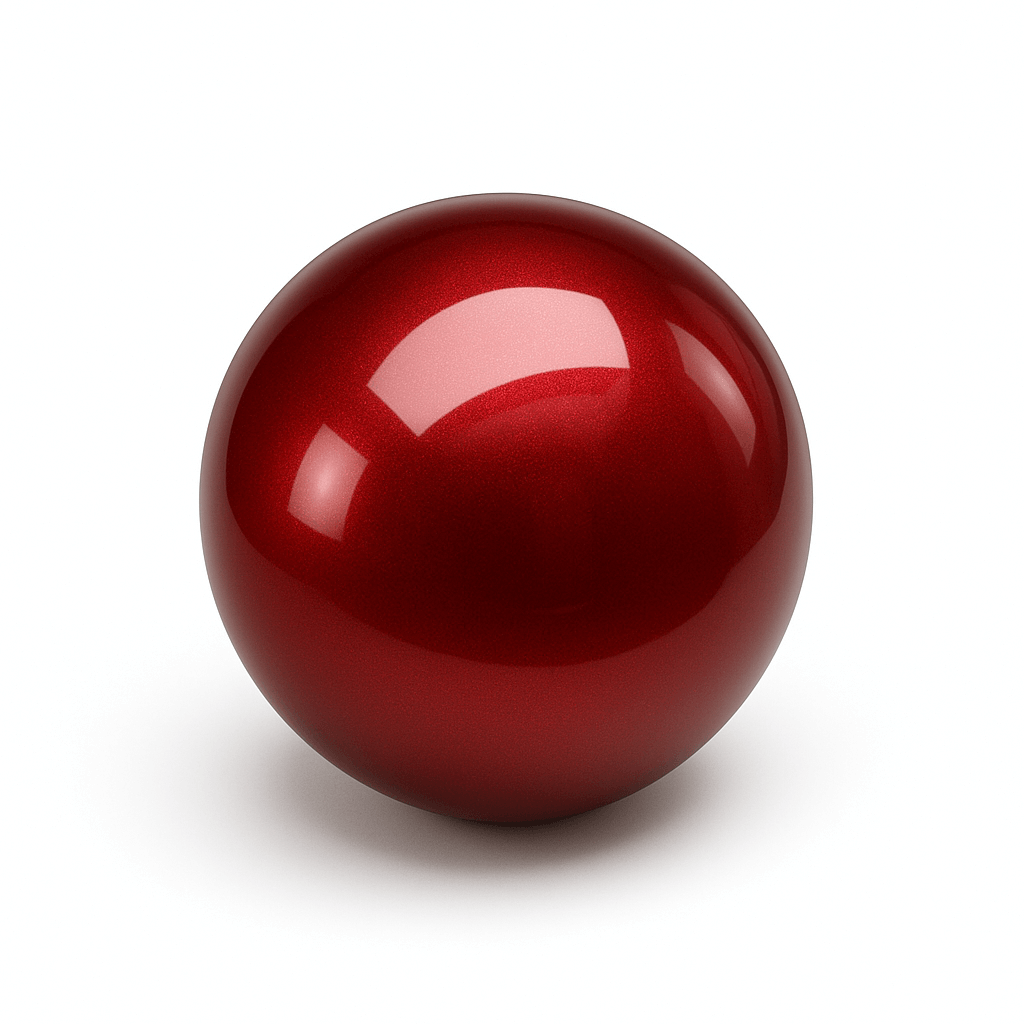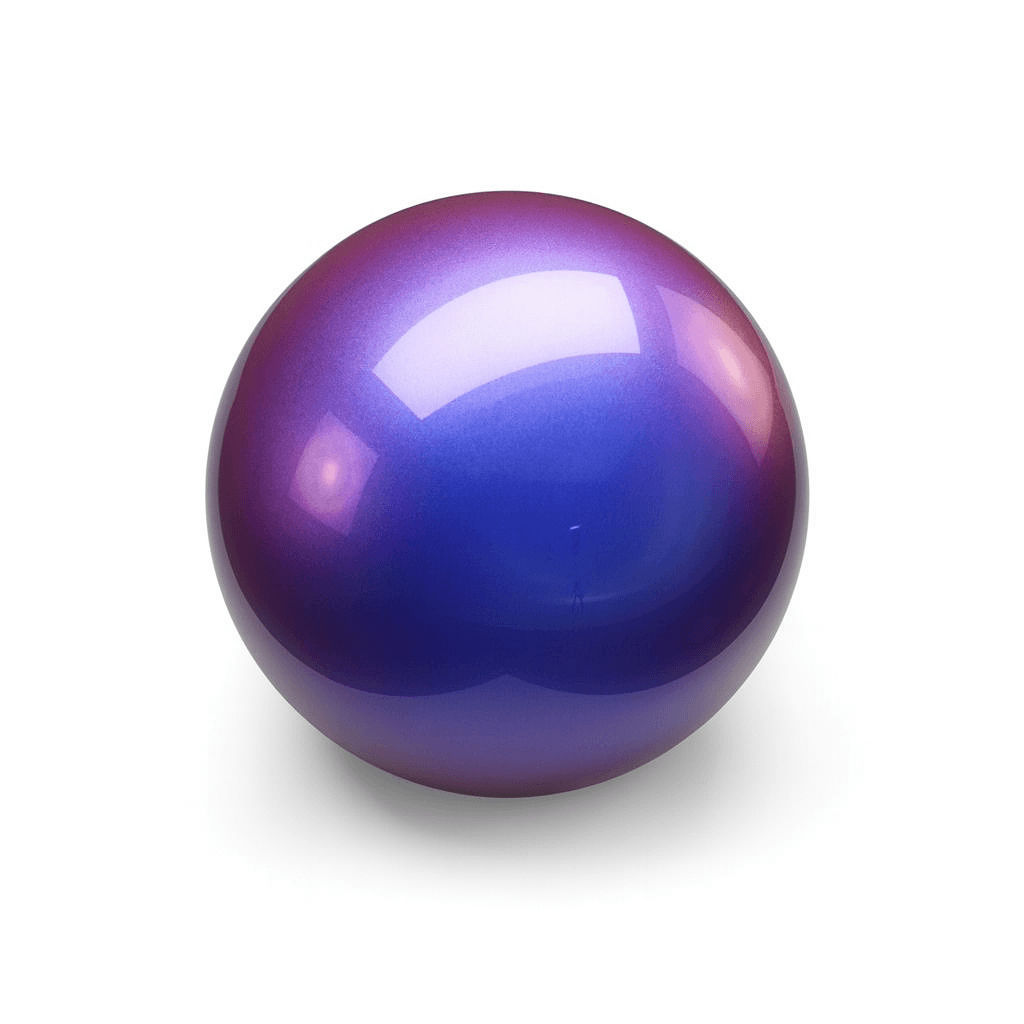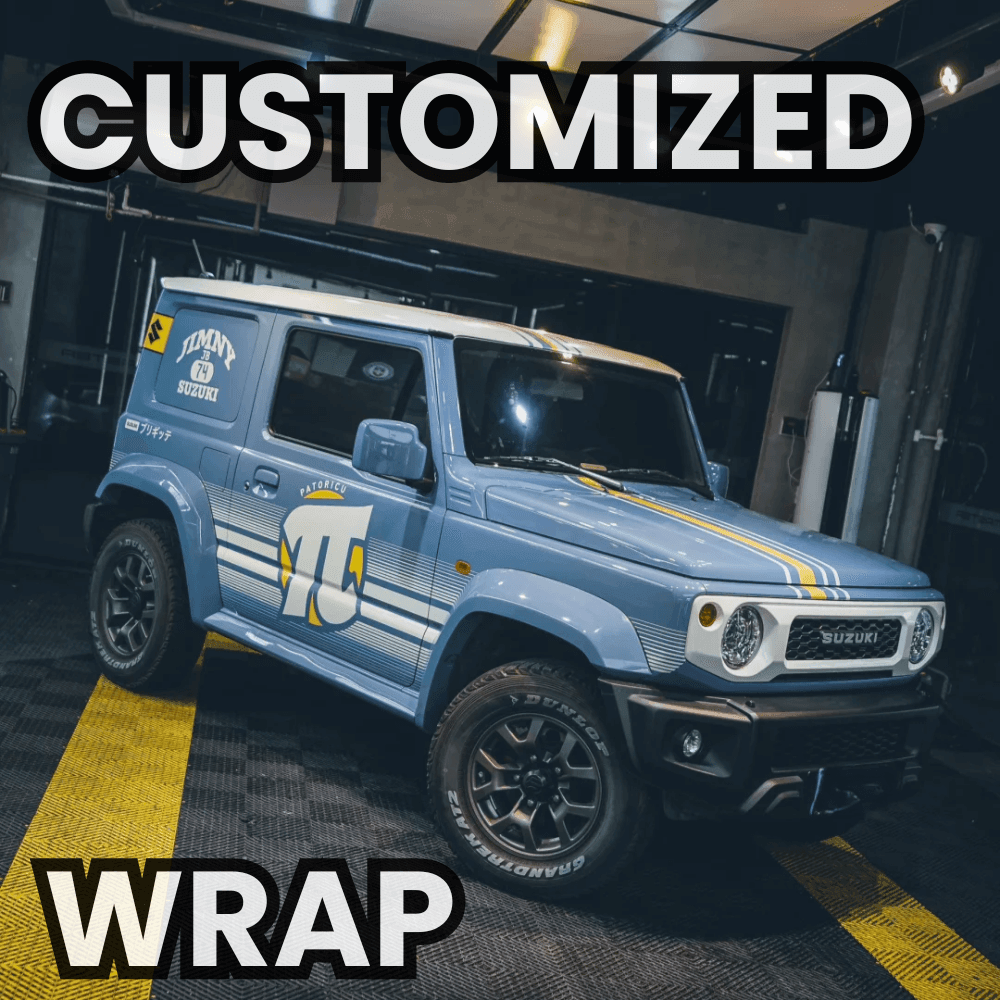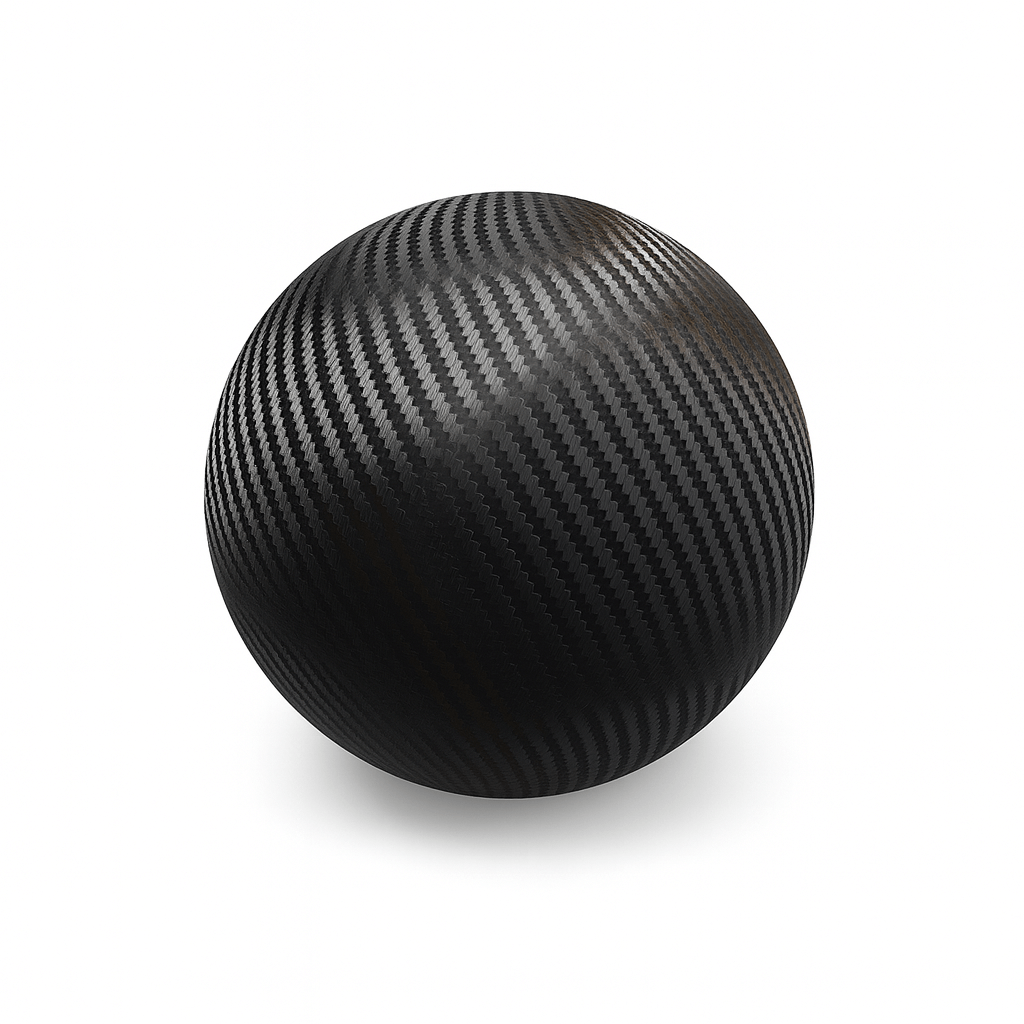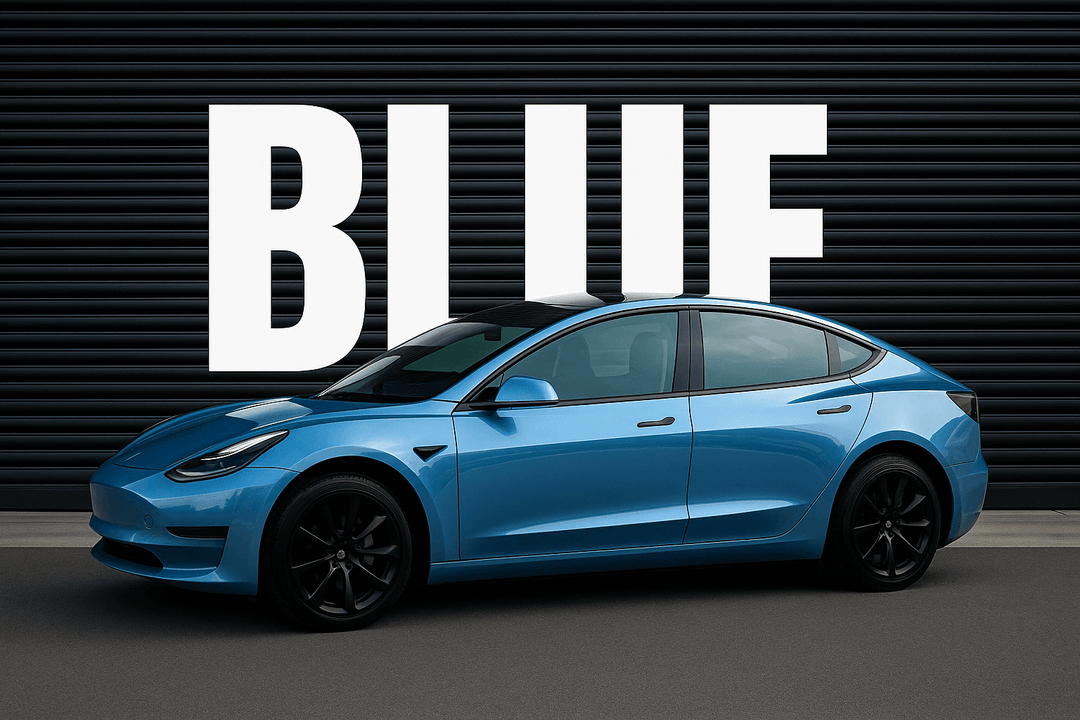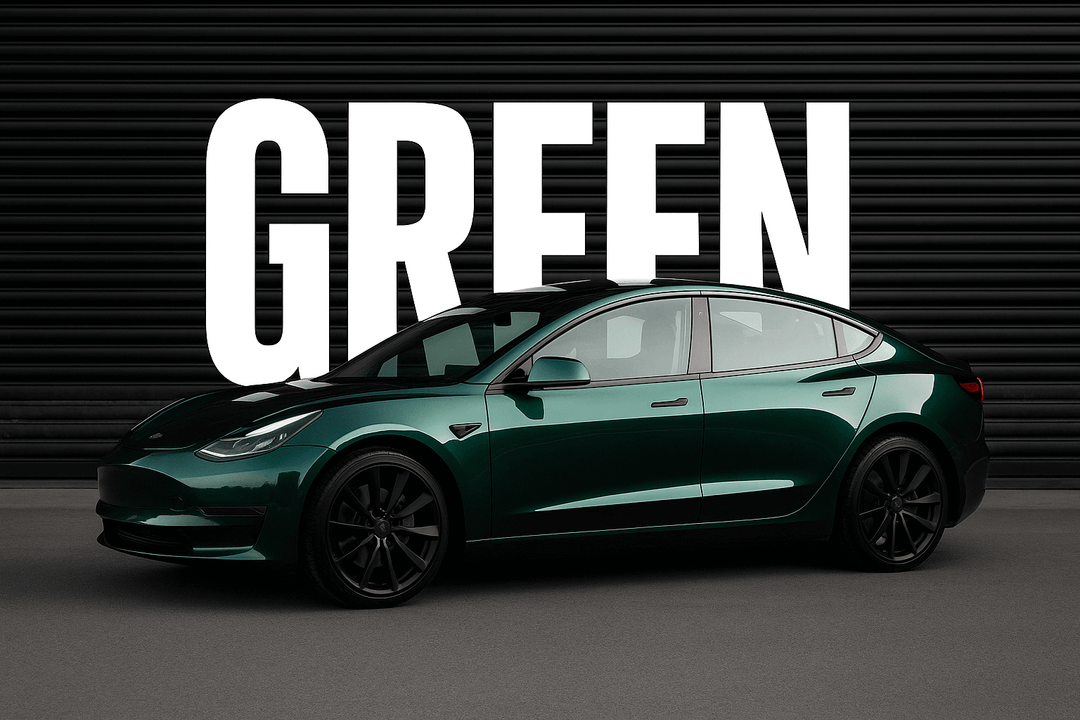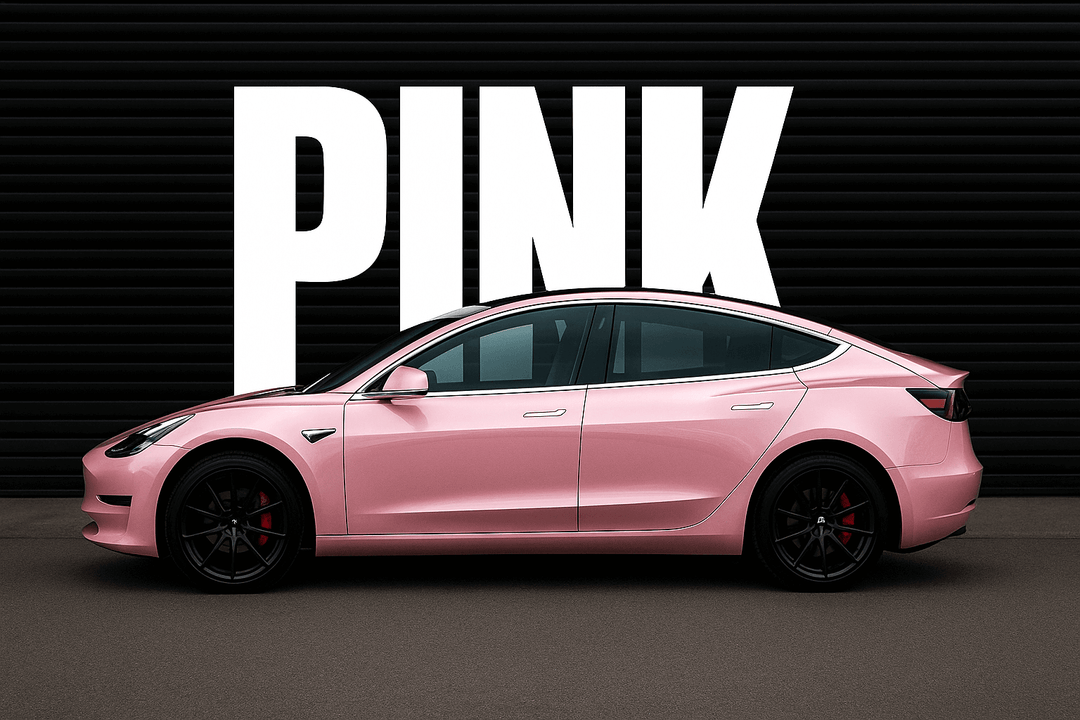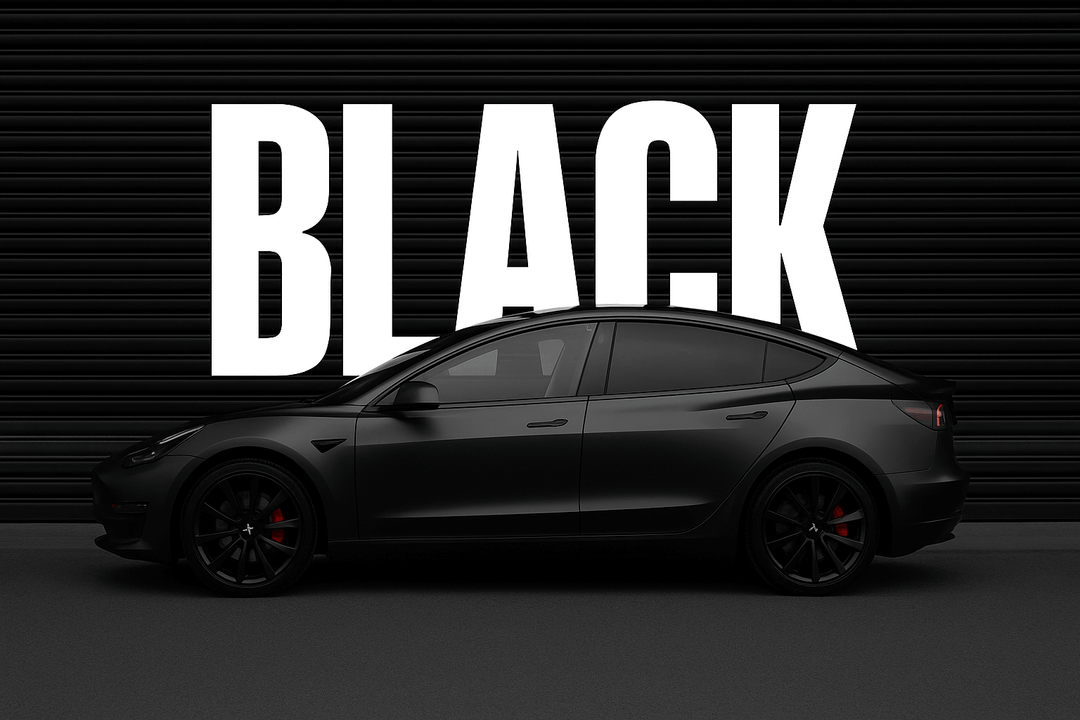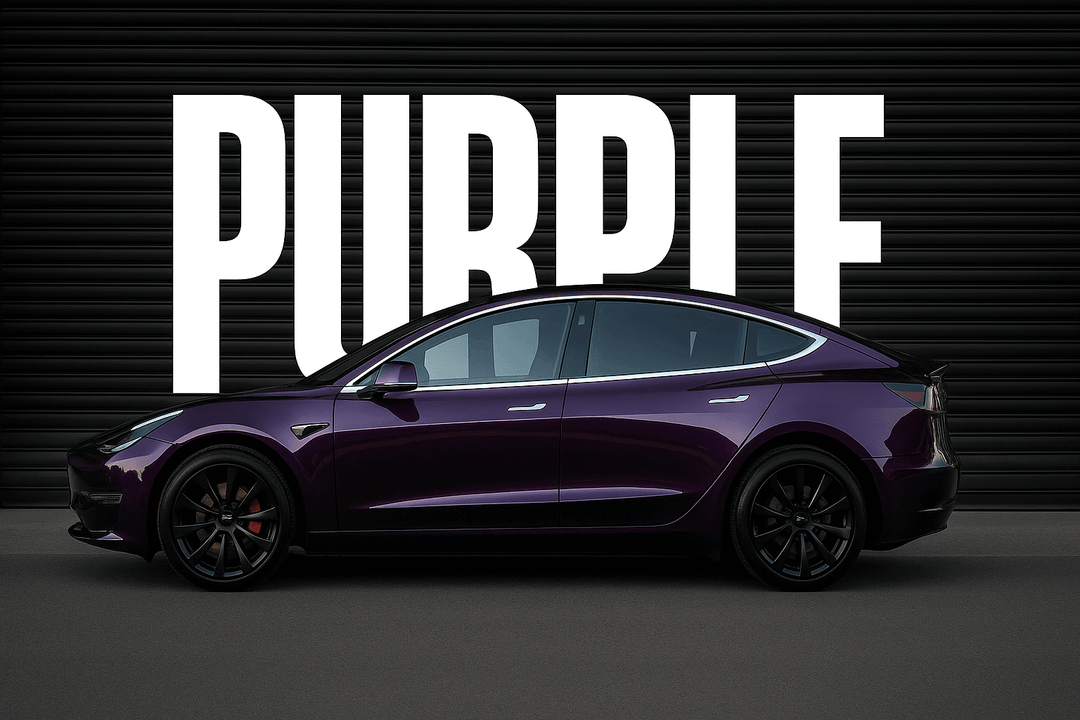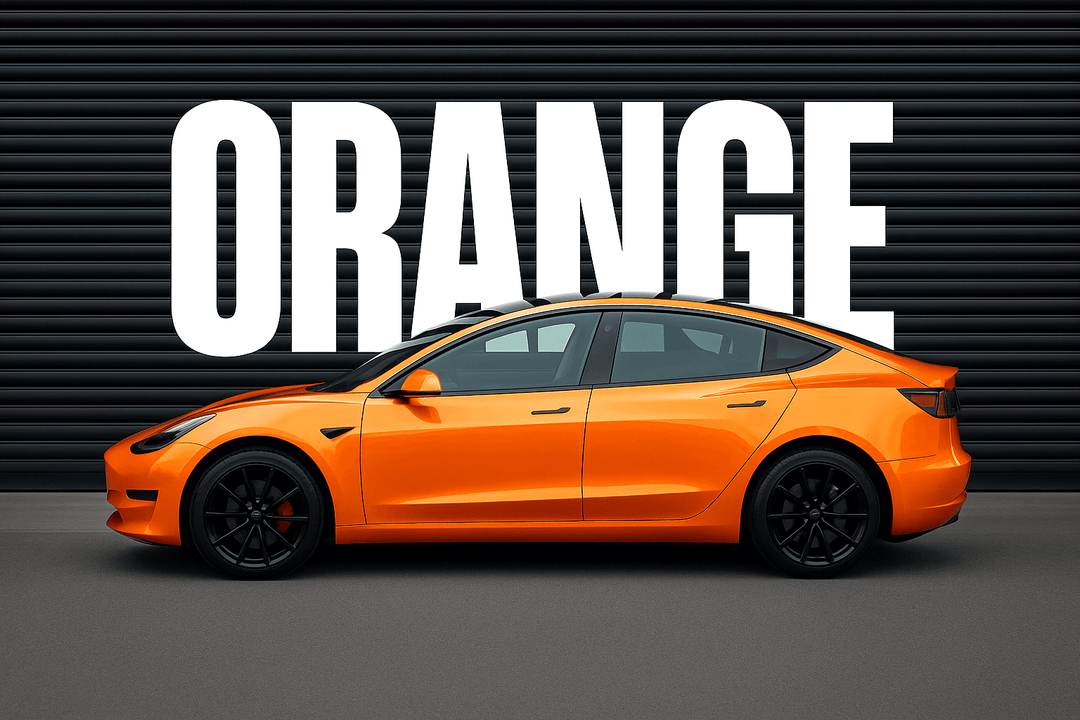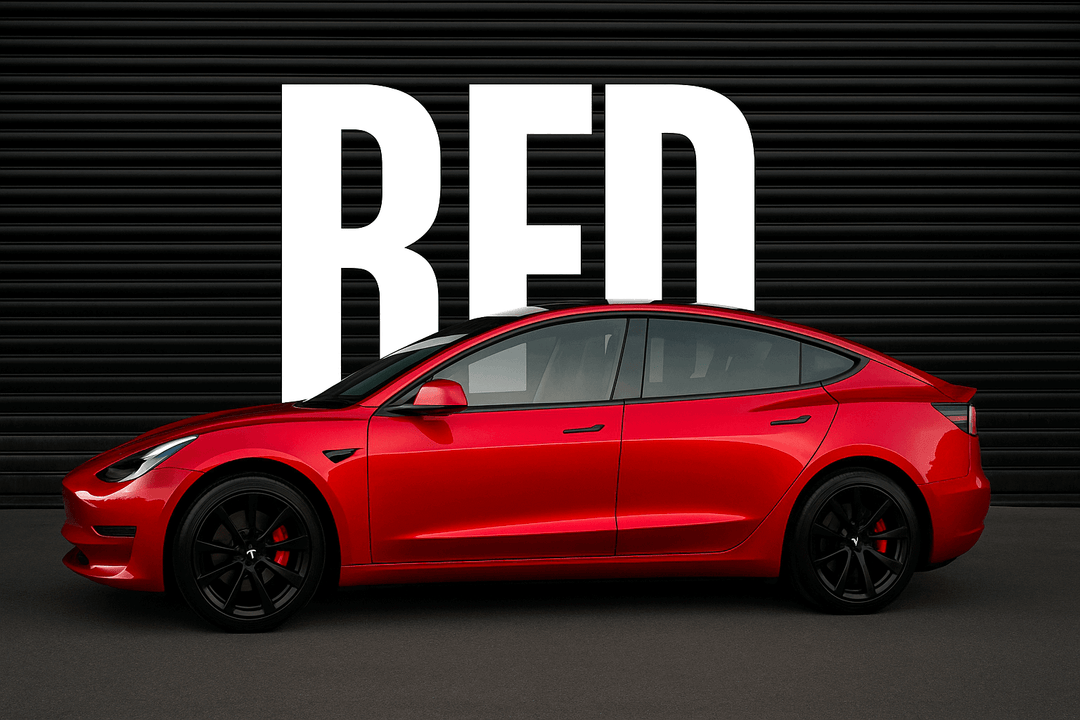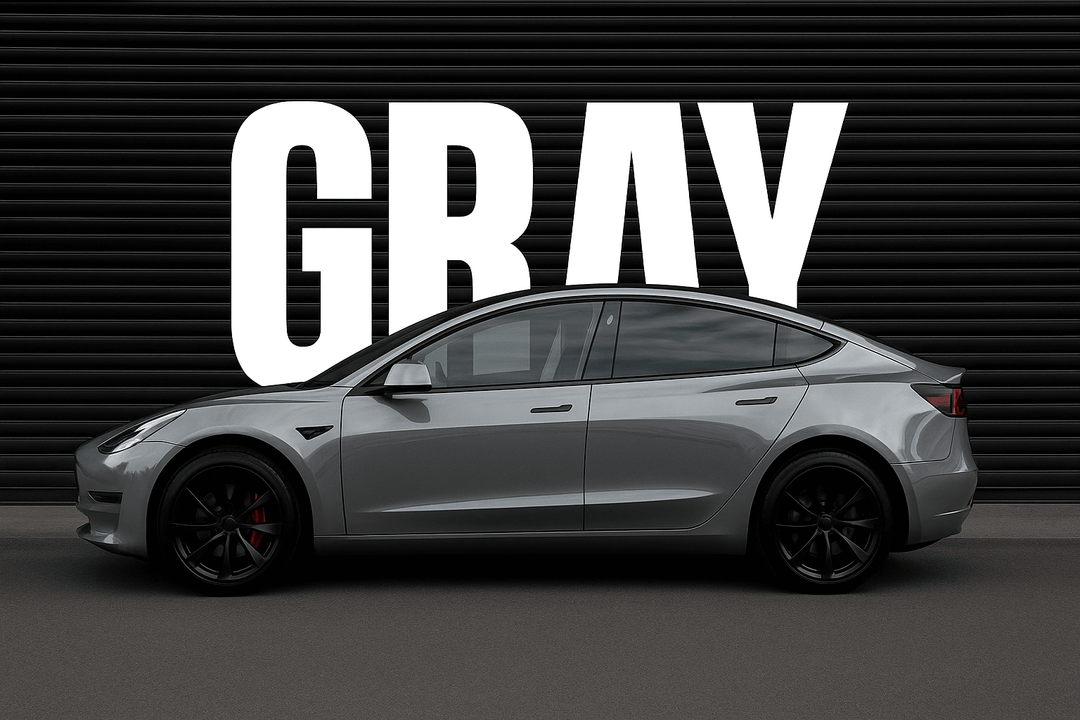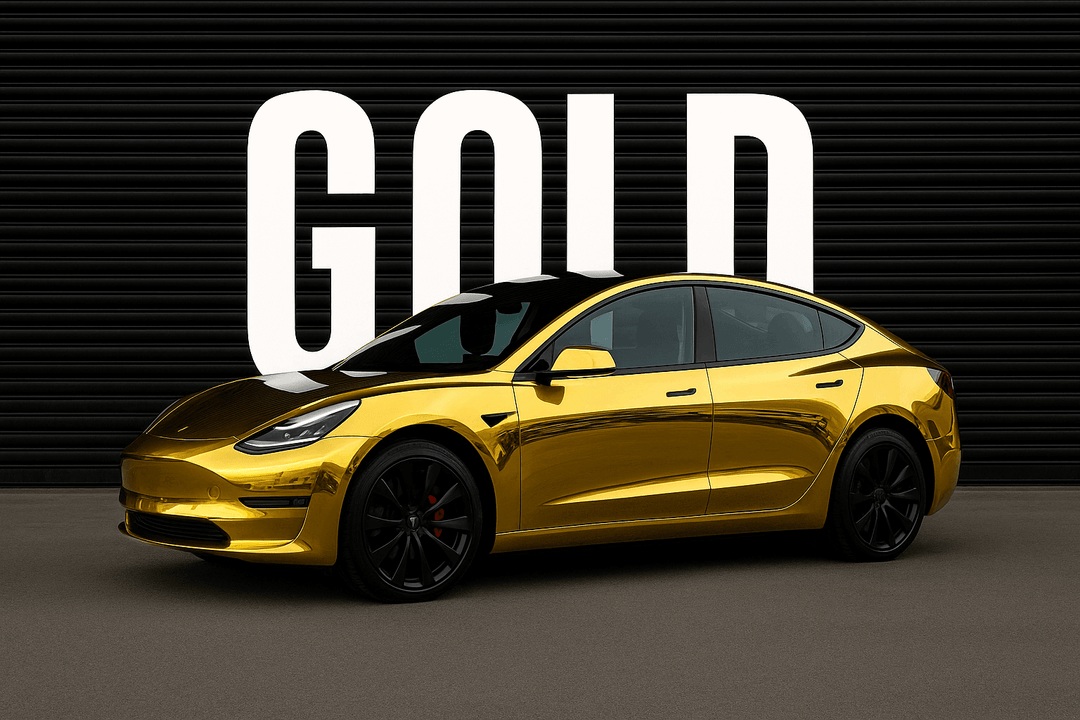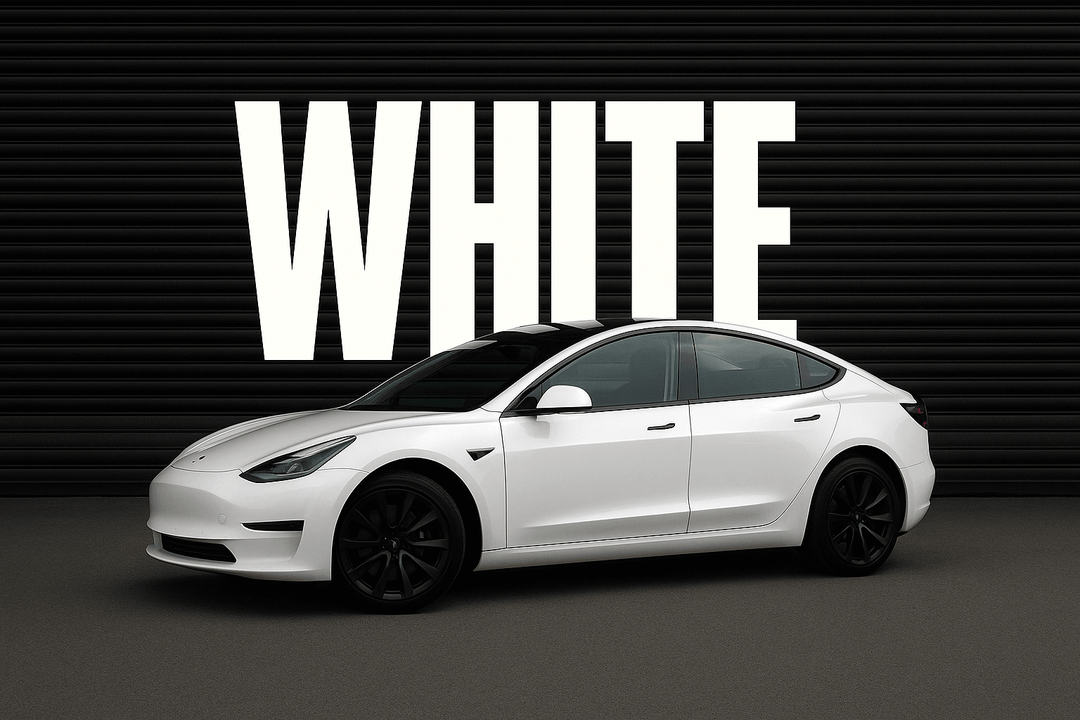Can You Wrap a Car with Chrome Vinyl?
A car adorned in a dazzling chrome finish glides down the street, catching the sunlight in an almost hypnotic display of brilliance. This is no ordinary paint job; it’s the work of a chrome vinyl car wrap, transforming any vehicle into a statement piece!
What is chrome vinyl? It is a high-quality, ultra-reflective car wrapping material that mimics polished metal luster and is designed to achieve an extraordinary mirror-like sheen. Beyond their reflective properties, chrome wraps are synonymous with innovation, offering a futuristic edge that few other finishes can rival.
Chrome vinyl wraps are available in a variety of finishes. The classic mirror chrome wrap is a showstopper, reflecting light with a dazzling intensity that commands attention wherever you go. For a more avant-garde appeal, opal chrome vinyl adds an iridescent effect, shimmering in a spectrum of colors as the angle of light changes. Meanwhile, satin chrome provides a subtler charm with its smooth, pearlescent surface that balances luxury and restraint.
Made from premium materials, chrome vinyl wraps are not only about aesthetics. These durable films are crafted from high-grade polymeric vinyl and feature pressure-sensitive adhesive with air-release channels, ensuring a flawless, bubble-free application. They offer limited malleability for precise installations on even the most intricate vehicle contours. Once applied, chrome wraps protect against environmental wear, preserving the car's underlying paint while elevating its visual appeal.
Can Any Car Be Wrapped In Chrome Vinyl?
Not every car is an ideal candidate for a chrome vinyl wrap, but the majority can be transformed with this luxurious material. Chrome vinyl is a versatile solution to elevating your vehicle’s aesthetics—provided the groundwork is suitable.
Compatibility with Different Car Types and Shapes
Though their limited malleable yet durable design, these wraps can conform to the contours of various vehicle types, from flat hoods to complex curves. However, vehicles with extreme design features—like deep recesses, sharp edges, or unusually intricate detailing—may require skilled experience and techniques for a seamless application.
Curved surfaces, like the rounded edges of sports cars or domed hoods of luxury vehicles, are particularly challenging for chrome wraps. The reflective material amplifies imperfections, meaning precise alignment and tension during installation to achieve a smooth, bubble-free finish.
Considerations for Older Cars or Vehicles with Damaged Paint
While many cars can be wrapped in chrome vinyl, older vehicles or those with pre-existing paint damage may present unique challenges. Chrome vinyl adheres best to smooth, intact surfaces, as imperfections like scratches, rust, or flaking paint can interfere with adhesion and create visible irregularities beneath the wrap.
For older cars, it’s essential to assess the condition of the paint and bodywork before proceeding. Damaged areas should be repaired and sanded down to a smooth finish to ensure the vinyl adheres properly. In some cases, applying a base wrap or primer can help create a suitable surface for the chrome vinyl.
It’s also worth noting that chrome wraps are temporary solutions and won’t address structural paint issues. If your car’s paint is significantly degraded, the wrap may peel or bubble prematurely, reducing its lifespan and appearance.
How Much Does It Cost To Wrap A Car In Chrome?
Chrome vinyl its stunning, mirror-like finish, and luxurious appeal come with a price tag that reflects its exclusivity. The cost of wrapping a car in chrome vinyl can range between $6,000 and $8,000, depending on various factors such as the size of the vehicle, the type of chrome finish, and the complexity of the installation.
A full chrome wrap for an average-sized sedan typically starts around $6,000 and can climb higher for larger vehicles like SUVs or trucks. On the other hand, a partial wrap, such as covering only the hood, roof, or accents, can cost between $2,000 and $4,000, making it a more budget-friendly option for those who want to experiment with chrome vinyl without committing to a full wrap.
You buy high-quality Chrome vinyl at an affordable price at Yeswrap, a standard 5ft x 59ft roll of chrome vinyl—suitable for most full-vehicle wraps—costs $569 for the material.
The Key Factors Influencing Cost:
- Vehicle Size: Larger vehicles like SUVs or vans require more material and time, increasing the price.
- Complexity of Design: Cars with intricate curves or sharp angles require extra effort, adding to labor costs.
- Professional Installation: Given the challenges of working with chrome vinyl, hiring an experienced installer ensures quality but raises the cost
Pros and Cons of Wrapping Your Car in Chrome Vinyl
The plus points of chrome vinyl are
- Eye-catching and Mesmerizing: Chrome vinyl wraps instantly make any vehicle stand out. With its mirror-like finish, the wrap reflects light in a stunning way, making your car look sleek, modern, and undeniably attention-grabbing.
- Durability: When applied by professionals, chrome vinyl wraps are highly durable and can last up to 5 years. The vinyl protects your car’s paint from fading, scratches, and UV damage, keeping your vehicle looking fresh and new for years to come.
- Paint Protection: Like other vinyl wraps, chrome vinyl acts as a protective shield for your car's original paint. It guards against dirt, debris, and weather conditions, ensuring that your car’s paint remains in good condition even under harsh elements.
The downsides of chrome vinyl
- High Cost: Chrome vinyl is more expensive compared to other types of wraps, such as matte or glossy finishes.
- Visible Scratches: While the shiny surface is stunning, it also means that any scratches or imperfections become highly visible. Unlike matte finishes that can camouflage minor blemishes, chrome vinyl can highlight even the smallest of marks.
- Difficult Maintenance: Chrome wraps require more upkeep than standard vinyl wraps. The reflective surface can show fingerprints, smudges, and dirt more clearly, meaning you’ll need to clean and care for it regularly. Additionally, improper cleaning techniques or harsh chemicals can damage the finish, so special care is necessary to maintain its flawless shine.
Things To Know Before Wrap Your Vehicle with Chrome Vinyl
Chrome vinyl wraps require extra care and attention during installation due to their delicate nature. If you’re new to car wrapping or lack experience, chrome vinyl might not be the best starting point. It’s a material that demands precision, skill, and patience, making it a job best left to professionals. Here are some key things to know before wrapping your vehicle with chrome vinyl:
- Highly Delicate Material: Chrome vinyl is more fragile than other types of wraps. If mishandled, it can easily crack, haze, or tear, leading to an uneven or damaged finish.
- Pressure and Heat Sensitivity: The application process requires careful control of pressure and heat. Overstretching or overheating the material can ruin its mirror-like appearance. Always use a heat gun set to low heat rather than a propane torch, as the film is prone to burning.
- Prone to Scratches and Marks: Chrome vinyl’s reflective surface is highly susceptible to marks and scratches. During installation, always use a soft, clean squeegee to avoid leaving blemishes. Hold the squeegee at a low angle to prevent its edges from scratching the surface.
- Non-Healing Properties: Unlike some other vinyl wraps, chrome vinyl does not self-heal. Once damaged, scratches or imperfections cannot be fixed with heat, making it critical to avoid defects during installation.
- Installation Challenges: Chrome vinyl tears more easily than standard vinyl films, making it tricky to handle during application. Its unforgiving nature means even minor errors can become highly visible, especially on reflective surfaces.
- Uniform Appearance: One advantage of chrome vinyl is its non-directional finish, which ensures a consistent appearance regardless of the orientation during installation. This makes alignment slightly easier compared to directional films.
- Professional Installation Recommended: Due to its unique properties and the challenges of working with it, chrome vinyl is best applied by experienced professionals. Attempting a DIY installation without the proper tools and expertise can lead to costly mistakes.
Maintenance and Longevity of Chrome Vinyl Wraps
Chrome vinyl wraps are a stunning way to enhance your vehicle’s appearance, but maintaining their pristine, mirror-like finish requires a dedicated care routine. Here’s everything you need to know about chrome wrap maintenance and its longevity.
How Long Do Chrome Wraps Last?
When applied professionally and cared for properly, chrome wraps typically last between 3 to 5 years. However, factors like environmental exposure, driving habits, and maintenance routines can significantly affect their lifespan. Frequent exposure to harsh elements like direct sunlight, road salt, or extreme weather can shorten the wrap’s durability, while regular cleaning and protective measures can extend it.
Tips for Cleaning and Maintaining Chrome Vinyl Wraps
Wash Regularly but Gently:
Use a soft microfiber cloth or sponge and a mild, non-abrasive car wash soap to clean your chrome wrap.
Avoid high-pressure car washes or harsh chemicals, as they can damage the reflective surface or cause the vinyl to lift at the edges.
Spot Clean Immediately:
Remove bird droppings, tree sap, and other contaminants as soon as possible. These can stain or degrade the chrome vinyl if left for too long.
Use a specially formulated vinyl-safe cleaner for tough stains.
Avoid Abrasive Materials:
Never use brushes, scrubbing pads, or abrasive tools to clean your wrap. These can leave visible scratches or dull the chrome finish.
Stick to soft materials like microfiber towels to preserve the shine.
Protect Against UV Damage:
Prolonged sun exposure can cause fading or discoloration over time. Whenever possible, park your vehicle in a shaded area or use a car cover to protect the wrap from UV rays.
Consider applying a vinyl-safe UV protectant for added defense against sun damage.
Dry Properly After Washing:
Use a clean microfiber cloth to dry the wrap immediately after washing. Air drying can leave water spots on the reflective surface, diminishing its glossy appearance.
Be Cautious with Edges:
Inspect the edges of the wrap periodically for lifting or peeling, especially after cleaning. Addressing these issues early can prevent further damage and prolong the wrap's life.
Use Gentle Heat for Minor Wrinkles:
If small wrinkles or bubbles appear, a low-heat setting on a heat gun can help smooth them out. Be careful not to overheat the vinyl, as chrome wraps are particularly sensitive to high temperatures.
Protecting Your Chrome Wrap for Maximum Longevity
To maximize the lifespan of your chrome wrap:
Avoid automatic car washes, as the brushes and high pressure can damage the vinyl.
Refrain from waxing or polishing the wrap, as these products can alter its finish or cause streaks.
Legal Considerations and Regulations for Chrome Vinyl Wraps
While chrome vinyl wraps offer an exciting way to customize your vehicle, it’s important to be aware of the legal restrictions that may apply, especially concerning the use of reflective materials. In certain areas, particularly in the United States, laws regarding vehicle modifications are in place to ensure safety on the roads. These regulations can vary from state to state, and they often include specific rules about reflective wraps like chrome vinyl. Here’s what you need to know:
Reflective Materials and Legal Restrictions
In some regions, the use of reflective materials—such as chrome vinyl—on vehicles is subject to legal restrictions due to safety concerns. Reflective surfaces can sometimes interfere with the visibility of traffic signals, road signs, and even the ability of other drivers to clearly see a vehicle, particularly at night. As a result, some states have laws that limit the use of reflective wraps or require that they only be applied to certain parts of the vehicle.
Common Restrictions Include:
- Reflective Areas on the Vehicle: Many states have specific laws that restrict the use of reflective vinyl wraps on certain parts of the vehicle, such as the windows, headlights, taillights, or bumpers. Some regions may only permit reflective wraps on non-essential areas, like the body panels.
- Brightness or Intensity of Reflectivity: Certain areas, particularly in urban or high-traffic zones, may regulate how much reflection is allowed on a vehicle’s exterior. Overly bright or highly reflective wraps can be a safety concern, as they may create glare for other drivers or emergency responders.
- Color Restrictions: Some states have additional rules about colors that can be used for reflective wraps. For example, certain colors may be prohibited to avoid confusion with emergency vehicles (such as red or blue).
How to Check Local Laws Before Applying a Chrome Wrap
Before you apply a chrome vinyl wrap, it’s essential to check your local regulations to avoid fines, ticketing, or even the requirement to remove the wrap. Here’s how you can make sure your chrome wrap is legal:
- Consult Your State’s Vehicle Code or Department of Motor Vehicles (DMV):
- Each state has its own vehicle code or DMV regulations that outline what is permissible in terms of vehicle modifications. Look for sections that pertain to vehicle appearance, reflective materials, or vehicle wraps.
- Contact Local Authorities or a Professional Installer:
- Some local authorities may have additional rules that are not outlined in the state’s vehicle code. Contact your local DMV, or even consult with a professional vehicle wrapping service, as they may have experience dealing with local regulations.
- Review Local Traffic Laws and Safety Codes:
- Cities or municipalities may have their own traffic safety codes that address specific vehicle modifications. These can include rules on visibility, lighting, and reflective surfaces, all of which could apply to your chrome wrap.
- Check for Special Permits:
- In certain cases, you may need a special permit if you want to apply a highly reflective wrap or use it in areas with stricter visibility laws. This is more common for commercial vehicles or specialty cars.
What If Your Chrome Wrap Isn’t Legal?
If you discover that your chrome wrap doesn’t comply with local regulations, you may need to:
- Remove or replace the wrap with one that adheres to the legal standards.
- Reapply the wrap to less restricted areas of your vehicle.
- Seek a special exemption or permit if applicable.
Is Chrome Vinyl Legal?
In most states, chrome vinyl wraps are legal, but it’s important to make sure they comply with the reflective car wrap laws in your area. Always ensure that your wrap meets local safety standards to avoid potential legal issues down the road.
Wrap It In Chrome!
Chrome car wraps are the ultimate way to give your vehicle a head-turning, futuristic makeover. Their sleek, reflective finish exudes luxury and sophistication, making your car stand out in any crowd. Not only do these wraps deliver a bold aesthetic, but they also offer excellent paint protection, shielding your vehicle from scratches, UV rays, and road debris.
If you’re ready to elevate your vehicle’s look and leave an unforgettable impression, it’s time to wrap it in chrome. Explore the exquisite chrome vinyl collection at Yeswrap, and let your car dazzle with unparalleled brilliance!







